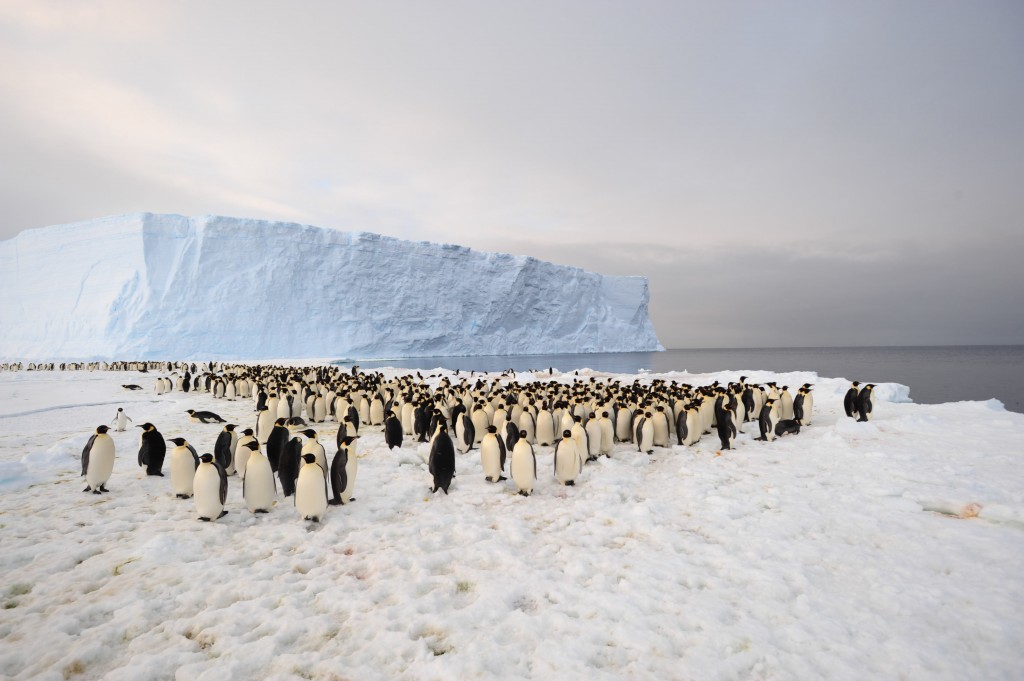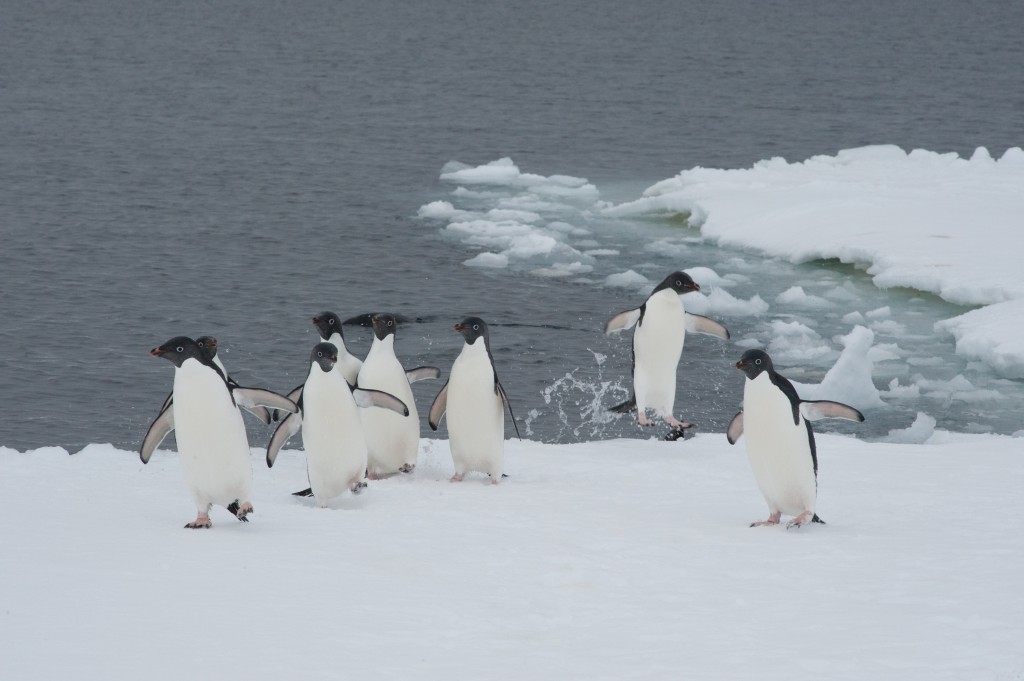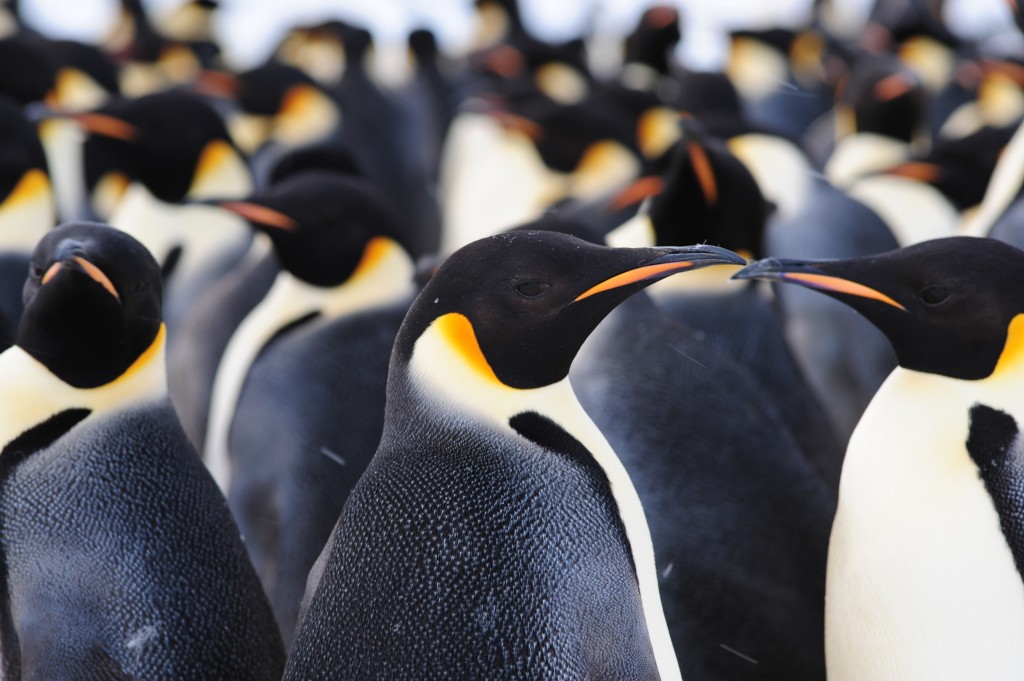“First foot” for the “space” penguins

Penguins galore – Photographed by the International Polar Foundation team in Antarctica, December 2012
You may remember a report a couple of years ago about how satellite images revealed the existence of a hitherto unknown large colony of penguins in an area of Antarctica. AT that time, researchers from the British Antarctic Survey and the UK National Environment Research Council attracted a fair bit attention with the “penguins from space” story. Now three members of a team from Belgium’s Princess Elisabeth Antarctica polar research station have become the first humans to visit and photograph the colony of around 9,000 emperor penguins on Antarctica’s Princess Ragnhild Coast.
I’m not sure what the penguins though about the “first foot” from human civilisation, but it was an “unforgettable moment” for the researchers. Expedition leader Alain Hubert, the station’s chief mechanic Kristof Soete and Swiss mountain guide Raphael Richard travelled to the colony in December 2012. Hubert says the team had come across so many emperor penguins since they started work in the area that they knew there must be a colony in the east somewhere, as also indicated by the satellite study.
“Because we were operating not far from the satellite location, I decided to force the way and try to access this remote and unknown place”, says Hubert. “The surprise was even more than all I could have expected or dreamed about”. The three researchers were delighted to encounter groups with more than a thousand penguins at a time, three quarters of them chicks.
The lucky penguin-viewers are part of a team supporting scientific research on the Derwael Ice Rise, some 50 km from the colony, and 250km from the Belgian research station. The projects include IceCon, which aims to gain a better understanding of the reate of ice loss in the region, and Be:Wise, which is looking at ice-shelf flow dynamics.
- A closer view at the penguin colony situated at about 50km of Derwael ice rise. Pic again by International Polar Foundation
More spectactular photos of the penguins at International Polar Foundation
More on IPF-supported Antarctic research projects on DW.

















